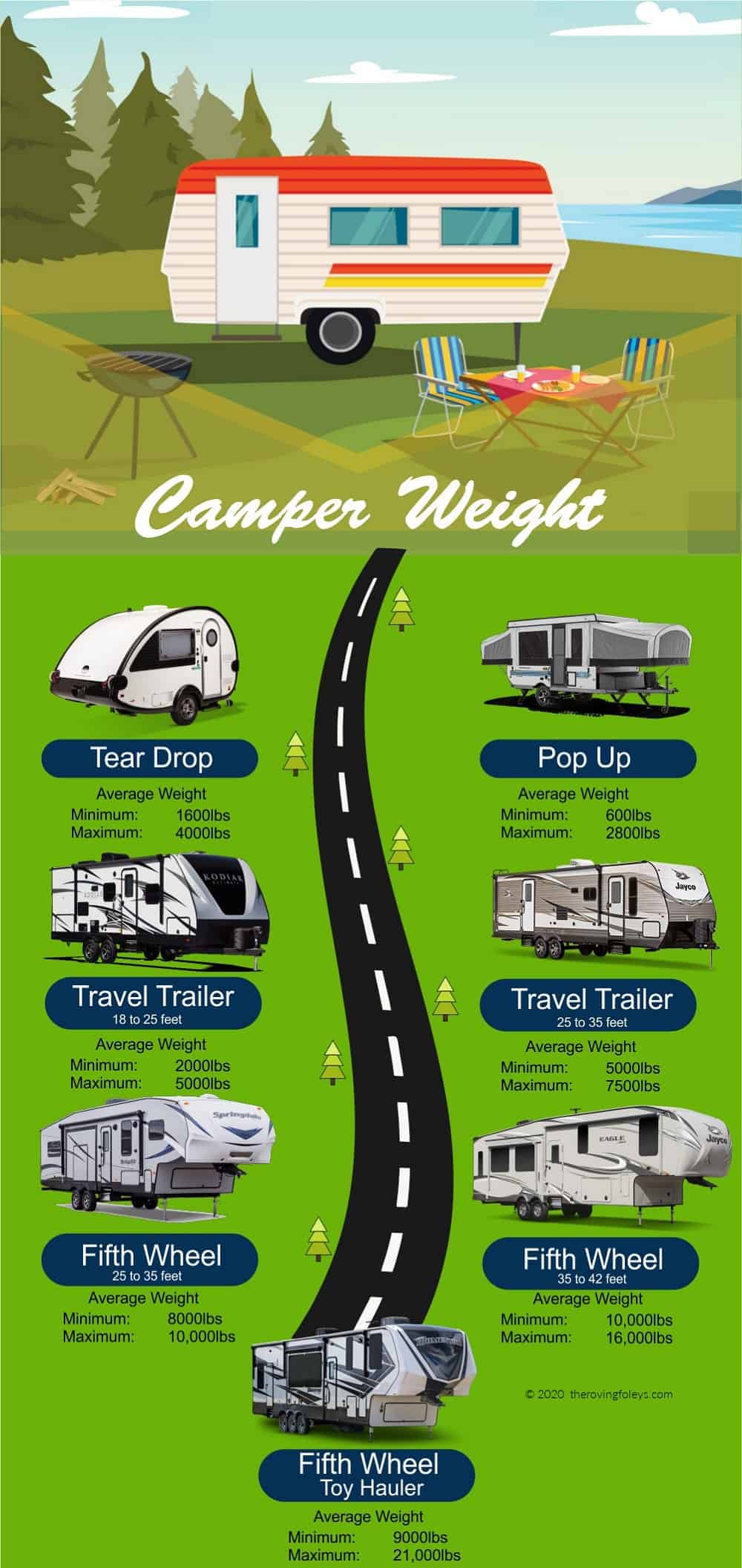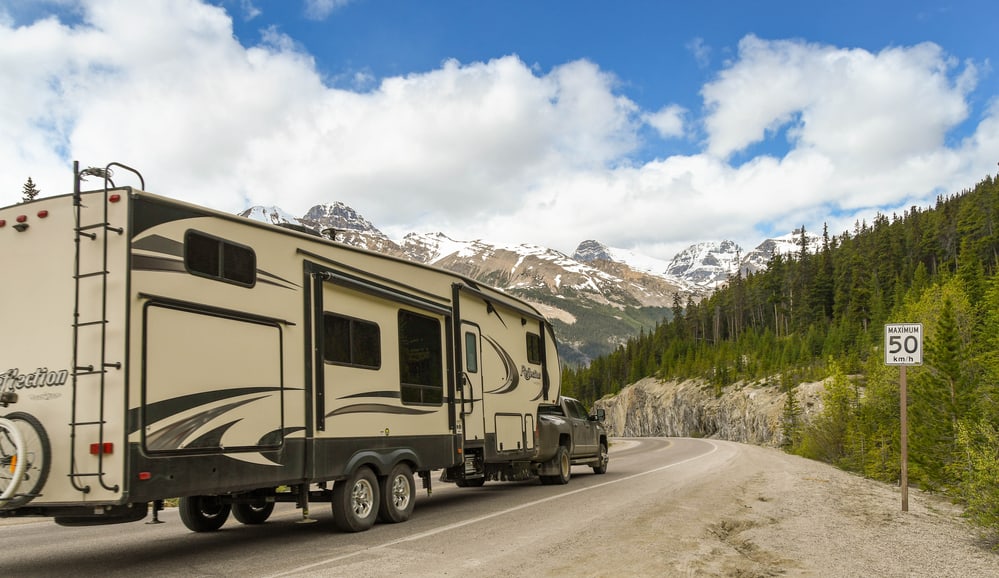Are you ready to embark on an adventure with a travel trailer? Before hitting the road, it’s crucial to understand the average travel trailer weight. This guide will delve deep into everything you need to know about travel trailer weights, helping you make informed decisions for your travels.
What is a Travel Trailer?
A travel trailer is a towable RV that provides living accommodation. Unlike motorhomes, travel trailers rely on a separate vehicle for towing. From rustic campers to luxurious models, these trailers cater to diverse travel needs.
Why is Travel Trailer Weight Important?
Understanding the weight of a travel trailer is essential for several reasons:
- Vehicle Compatibility: Ensure your towing vehicle can handle the weight.
- Safety: A heavy trailer can compromise your stopping ability and handling.
- Fuel Efficiency: Heavier trailers typically consume more fuel.
- Legal Restrictions: Different states have varying weight regulations.
Average Travel Trailer Weight
The average travel trailer weight typically ranges from 1,500 to 8,000 pounds. Here, we categorize trailers by their weights:

Lightweight Travel Trailers (1,500 – 4,000 lbs)
These trailers are ideal for smaller vehicles and first-time RVers. They offer great fuel efficiency and maneuverability. Personal experience has shown me that lightweight trailers like the Forest River R-Pod are easy to tow and manage, making them perfect for weekend getaways.
Mid-Weight Travel Trailers (4,000 – 6,000 lbs)
Mid-weight trailers provide more space and amenities, catering to families and longer trips. Popular models include the Jayco Jay Flight, which offers spacious interiors without being excessively heavy.

Heavy Travel Trailers (6,000 – 8,000 lbs)
Heavy travel trailers come with luxury features and often require a more powerful towing vehicle. While they provide a more comfortable experience, they can be challenging to tow, especially for inexperienced travelers.
Comparative Weight Table of Popular Travel Trailers
| Model | Weight (lbs) | Length (ft) | Price Range |
|---|---|---|---|
| Forest River R-Pod | 2,000 | 20 | $15,000 – $25,000 |
| Jayco Jay Flight | 4,800 | 27 | $25,000 – $35,000 |
| Keystone Cougar | 7,500 | 30 | $30,000 – $50,000 |

How to Determine Your Trailer’s Weight
The weight of your travel trailer can be determined through several methods:
- Manufacturer Specifications: Your dealer or manufacturer can provide the Gross Vehicle Weight Rating (GVWR).
- Weigh Station: Visit a local weigh station for an accurate measurement.
- DIY Weighing: Use a standard scale, and subtract your vehicle’s weight from the combined weight.
Travel Trailer Weight Ratings Explained
Familiarizing yourself with travel trailer weight ratings is essential for maintaining safety and efficiency.

Gross Vehicle Weight Rating (GVWR)
The maximum weight a trailer can safely carry, including cargo, fluids, and passengers.
Dry Weight
The total weight of the trailer without any cargo or fluids.

Cargo Carrying Capacity (CCC)
The weight capacity available for cargo, calculated by subtracting the dry weight from the GVWR.
Travel Tips for Managing Trailer Weight
Here are some tips to help manage your trailer weight effectively:

1. Choose the Right Tow Vehicle
Your tow vehicle should comfortably exceed the trailer’s weight to ensure safe towing. Always check the tow rating of your vehicle before making a purchase.
2. Pack Smart
Minimize unnecessary items while packing. Every extra pound counts when you’re towing.

3. Regularly Check Your Weights
Before any trip, weigh your trailer to ensure you’re within limits. This practice promotes safety and compliance with regulations.
Destination Highlights for Travel Trailer Adventures
Traveling with a trailer opens up a world of destination possibilities. Here are some favorites:
Yosemite National Park, California
Experience stunning landscapes and endless hiking trails. The park has designated campgrounds that are trailer-friendly.
Grand Canyon National Park, Arizona
Towing your trailer here allows you to experience breathtaking views and access remote campgrounds.
Lake Tahoe, Nevada/California
Lake Tahoe provides beautiful scenery and ample outdoor activities, including fishing and hiking.
Pros and Cons of Travel Trailers
Pros
- Versatility: They can be towed by various vehicles.
- Affordability: Generally less expensive than motorhomes.
- Space and Comfort: Many models offer spacious interiors.
Cons
- Towing Difficulties: Requires practice to master towing.
- Parking Challenges: Finding suitable parking can sometimes be tricky.
- Weight Regulations: Must abide by state weight limits.
Reviews of Top Travel Trailers
Here are some reviews based on ratings from top eCommerce websites:
1. Forest River R-Pod
Average Rating: 4.5/5
Review: “Perfect for solo travelers and couples, the R-Pod is lightweight and easy to tow. The modern design and functional space make it a favorite!”
2. Jayco Jay Flight
Average Rating: 4.6/5
Review: “Ideal for families, the Jay Flight offers plenty of sleeping spaces and storage options. A solid choice for long trips!”
3. Keystone Cougar
Average Rating: 4.4/5
Review: “Luxury meets functionality with the Cougar. Spacious interiors and modern amenities make it standout, but requires a robust tow vehicle.”
FAQs About Travel Trailer Weight
What is the average weight of a travel trailer?
The average weight ranges from 1,500 to 8,000 pounds, depending on the model and size.
How do I find my trailer’s weight?
You can find your trailer’s weight through the manufacturer’s specification, weigh stations, or by weighing it on a regular scale.
Can I tow a trailer heavier than my vehicle’s capacity?
No, towing a trailer heavier than your vehicle’s capacity can lead to serious safety risks and legal issues.
What should I consider when buying a travel trailer?
Consider the weight, size, amenities, and your towing vehicle’s capacity before making a purchase.
Conclusion
Understanding the average travel trailer weight is vital for a smooth and enjoyable travel experience. Whether you are a seasoned RVer or a beginner, being educated about trailer weights will enhance your adventures. Remember to choose a trailer that fits your needs, and always prioritize safety while traveling. Happy RVing!